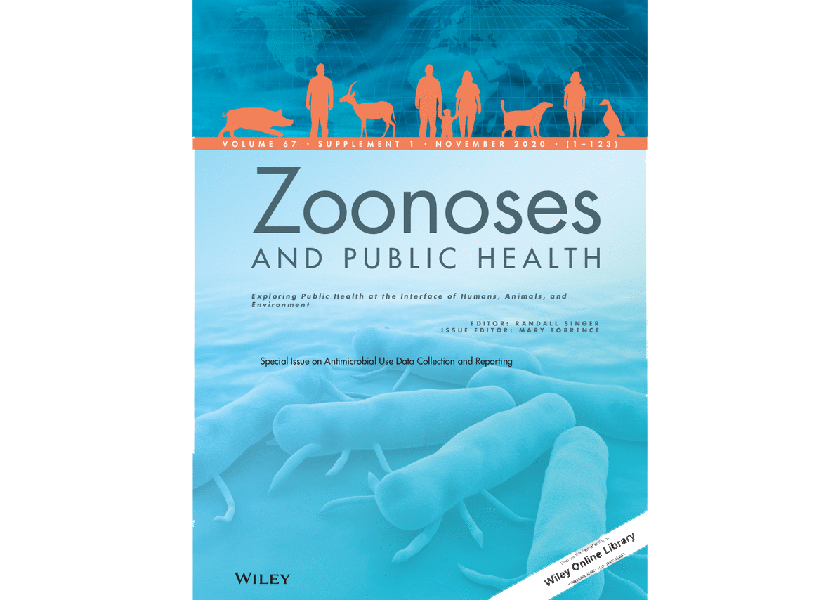Universities Partner to Study Antimicrobial Use in Food Animal Production

Researchers from Kansas State University (K-State) and the University of Minnesota have partnered with the FDA’s Center for Veterinary Medicine (FDA-CVM) and food animal industries to evaluate the systems used for collecting and evaluating antimicrobial use data in food animal production. This includes U.S. beef feedlot, dairy, swine, turkey and chicken production settings, according to a release from K-State. The project is largely funded by the FDA-CVM.
In addition, the researchers are collaborating with the USDA’s Center for Epidemiology and Animal Health as they develop their data systems. The research has been published in a special issue of Zoonoses and Public Health, an international journal that publishes “integrated and global approaches to disease transmission and public health at the interface of human and animal health,” the release notes.
The K-State team is leading the research for beef feedlots and diary, including Dr. Mike Apley, professor of production medicine at the university’s College of Veterinary Medicine (CVM), Dr. Brian Lubbers, associate professor of diagnostic medicine and pathobiology at the CVM, and former graduate students Nora Schrag and Katie Hope, who are now both K-State doctoral graduates in pathobiology.
At the University of Minnesota, researchers include Dr. Sandra Godden, professor in the department of veterinary population medicine, focusing on dairy cattle, and Dr. Randall Singer, professor of epidemiology at the university’s College of Veterinary Medicine’s (CVM) department of veterinary and biological sciences, who is focusing on poultry. Dr. Peter Davies, professor in the CVM’s Department of Veterinary Population, led the swine project.
The underlying goal of each project is to preserve the ability to use effective antimicrobials to treat disease for both humans and animals, the release says. The researchers say it is important to fully understand current antimicrobial use to better understand the future of antimicrobial use in animal agriculture. Food animal producers and veterinarians can also benefit from knowing how their current antimicrobial use compares to that of their peers. To do so, these goals require systems that are capable of gathering data from varying record systems, standardizing it and reporting the data in a meaningful way, the release continues.
"One of the key components of antibiotic stewardship is understanding how we are using the antimicrobials in comparison to others," says Dr. Apley, the principal investigator for K-State's portion of the project, in the release. "In our papers, you will find an emphasis on the effect of how we choose to report and evaluate antimicrobial use data, as well as the unique aspects of each food animal production system and how they require different approaches to data collection and analysis."
The scope of the monitoring in each project varies, from approximately 90% of the chicken industry, represented in Dr. Singers' data, to convenience samples involving 22 beef feedlots and 29 dairies.
Dr. Apley says producers and veterinarians were key to success of the projects. Each producer received a confidential benchmark report comparing their antimicrobial use to the other participants. The reports and papers separate antibiotics by class and present them in relation to the animal populations from which the data were derived, the release says.
The beef feedlot and dairy papers are pilot projects that will help inform the structure of systems designed to describe antibiotic use in a manner that supports antibiotic stewardship.
"The projects would not have been possible without our collaborating beef feedlot and dairy producers," Dr. Apley says in the release. "The ability of these producers to combine their own expertise with their veterinarian's in applying the data to their specific circumstances is a focus of our work. Their feedback on what is useful will shape our future efforts."
Dr. Apley is a current member of the Presidential Advisory Council for Combating Antibiotic-Resistant Bacteria, a council that Drs. Singer and Davis have previously served on. Collecting antimicrobial use data is one of the areas of focus in the most recent council report, which can be accessed at hhs.gov/ash/advisory-committees/paccarb/index.html.







